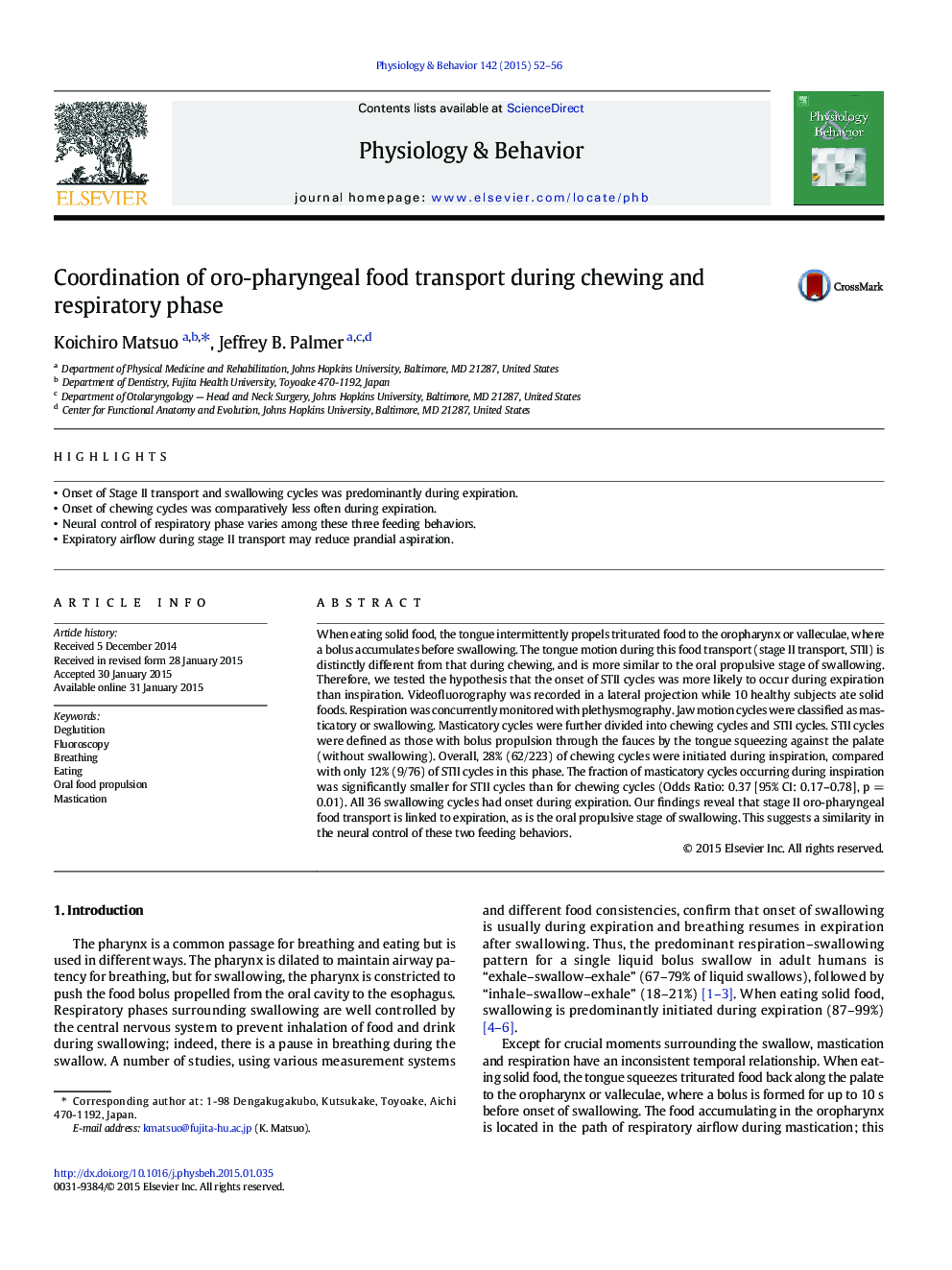| Article ID | Journal | Published Year | Pages | File Type |
|---|---|---|---|---|
| 5923666 | Physiology & Behavior | 2015 | 5 Pages |
Abstract
When eating solid food, the tongue intermittently propels triturated food to the oropharynx or valleculae, where a bolus accumulates before swallowing. The tongue motion during this food transport (stage II transport, STII) is distinctly different from that during chewing, and is more similar to the oral propulsive stage of swallowing. Therefore, we tested the hypothesis that the onset of STII cycles was more likely to occur during expiration than inspiration. Videofluorography was recorded in a lateral projection while 10 healthy subjects ate solid foods. Respiration was concurrently monitored with plethysmography. Jaw motion cycles were classified as masticatory or swallowing. Masticatory cycles were further divided into chewing cycles and STII cycles. STII cycles were defined as those with bolus propulsion through the fauces by the tongue squeezing against the palate (without swallowing). Overall, 28% (62/223) of chewing cycles were initiated during inspiration, compared with only 12% (9/76) of STII cycles in this phase. The fraction of masticatory cycles occurring during inspiration was significantly smaller for STII cycles than for chewing cycles (Odds Ratio: 0.37 [95% CI: 0.17-0.78], p = 0.01). All 36 swallowing cycles had onset during expiration. Our findings reveal that stage II oro-pharyngeal food transport is linked to expiration, as is the oral propulsive stage of swallowing. This suggests a similarity in the neural control of these two feeding behaviors.
Related Topics
Life Sciences
Biochemistry, Genetics and Molecular Biology
Physiology
Authors
Koichiro Matsuo, Jeffrey B. Palmer,
